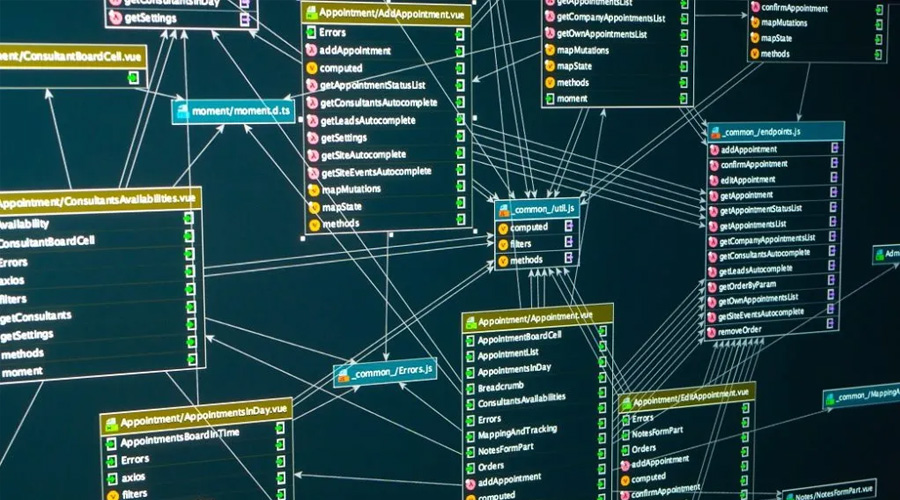Educational research databases make it easy to locate the literature you are looking for
Every student knows the significance of thorough educational research. Whether you are writing a thesis, dissertation, or research paper it is a key task to survey prior literature and research findings. But finding good research can be tough, especially when so much of it is locked behind paywalls. Educational research databases make it easy to locate the literature you are looking for. These sites are the secret weapons used by the popular essay writing service sites to guarantee that your essays are top-notch. Google Scholar, EBSCO, Web of Science, and more are some of the best databases. This article features the top 10 best databases for students to do their educational research.
- Why Educational Institutes Should Focus on Skill-Trade Programs?
- How to Impose Corporate Training Strategies on Learning Platform?
- How GPT-3 is Affecting the Education Sector
EBSCO Open Dissertations
EBSCO is the product of a collaboration between EBSCO and BiblioLabs. This Open Dissertations site aims to make ETD research simpler and accessible for students. The platform features multidisciplinary databases of research articles and dissertations from thousands of titles. The collection includes magazines, journals, and related ebooks as well. You can also screen your searches based on the sources. The categories are academic libraries, corporations, government, health care, public libraries, and schools.
Google Scholar
Even if you’ve not used Google Scholar before, you’ll know Google. And, thus, you can probably guess that Google Scholar is a search engine dedicated to academic work. Not everything listed on Google Scholar will be freely available in full. But it is a good place to start if you’re looking for a specific paper, and many papers can be downloaded for free. It is one of the best databases for students to do their educational research.
Academic Search
Academic Search Premier is a multidisciplinary database that provides full text for more than 4,600 journals, including approximately 3,900 peer-reviewed titles. A total of 8,500 journals are indexed and abstracted. PDF backfiles to 1975 or further are available for over 100 journals and searchable cited references are provided for more than 1,000 titles.
Scopus
Scopus is one of the two big commercials, bibliographic databases that cover scholarly literature from almost any discipline. Besides searching for research articles, Scopus also provides academic journal rankings, author profiles, and an h-index calculator. It is one of the best databases for students to do their educational research.
JSTOR
JSTOR is a portal to academic journal articles, ebooks, and primary sources. Particular focus is on the fields of African-American studies, anthropology, architecture, Asian studies, biological sciences, botany, ecology, economics, education, film, finance, folklore, history, language, literature, mathematics, middle-east studies, music, philosophy, political science, population/demography, religion, sociology, and statistics. Journal coverage begins with volume one of each title and continues within 3 to 5 years of the most current issue, depending on the title.
LISTA
LISTA is short for Library, Information Science and Technology Abstracts, and is a free research database that can easily replace your library visits. This research tool is another EBSCO product focused on indexing and abstracting journals, books, and other research reports. The search engine is advanced enough to help you find materials based on a specific phrase, photographs, and publication type. It is one of the best databases for students to do their educational research.
PubMed
PubMed is a search engine maintained by the NCBI, part of the United States National Library of Medicine. It provides access to more than 29 million citations of biomedical research from MEDLINE, life science journals, and online books. The NCBI runs a similar search engine for research in the chemical sciences called PubChem, too, which is also free to use.
Web of Science
The Web of Science is a combination of three databases: Science Citation Index Expanded, Social Sciences Citation Index, Arts & Humanities Citation Index, and Conference Proceedings Citation Index (Science & Technical Edition). It indexes more than 12,000 peer-reviewed journals, providing complete bibliographic data and author abstracts. Every item of significance is listed: articles, reviews, letters, notes, corrections, and editorials. In addition to access by author, title, and institution, it is also possible to search by cited authors and to find articles sharing one or more cited references.
WorldWideScience
WorldWideScience is a global academic search engine, providing access to national and international scientific databases from across the globe. One interesting feature is that it offers automatic translation, so users can have search results translated into their preferred language. It is one of the best databases for students for their educational research.
ArXiv
This open-access platform serves as an archive for scholarly articles in the different fields of STEM. To name a few, the titles range from mathematics, computer science, qualitative biology, finances, and statistics, to almost every sphere you can think of. The site is maintained and operated by Cornell University, partnering with the arXiv Leadership Team. One thing to note is that the materials here are not peer-reviewed by the team. Users can also submit articles on the site, to be published after moderation.



